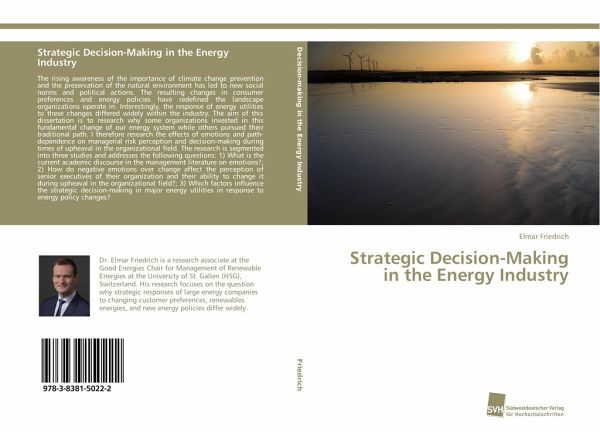
Strategic Decision-Making in the Energy Industry
Versandkostenfrei!
Versandfertig in 6-10 Tagen
30,99 €
inkl. MwSt.

PAYBACK Punkte
15 °P sammeln!
The rising awareness of the importance of climate change prevention and the preservation of the natural environment has led to new social norms and political actions. The resulting changes in consumer preferences and energy policies have redefined the landscape organizations operate in. Interestingly, the response of energy utilities to these changes differed widely within the industry. The aim of this dissertation is to research why some organizations invested in this fundamental change of our energy system while others pursued their traditional path. I therefore research the effects of emoti...
The rising awareness of the importance of climate change prevention and the preservation of the natural environment has led to new social norms and political actions. The resulting changes in consumer preferences and energy policies have redefined the landscape organizations operate in. Interestingly, the response of energy utilities to these changes differed widely within the industry. The aim of this dissertation is to research why some organizations invested in this fundamental change of our energy system while others pursued their traditional path. I therefore research the effects of emotions and path-dependence on managerial risk perception and decision-making during times of upheaval in the organizational field. The research is segmented into three studies and addresses the following questions: 1) What is the current academic discourse in the management literature on emotions?; 2) How do negative emotions over change affect the perception of senior executives of their organization and their ability to change it during upheaval in the organizational field?; 3) Which factors influence the strategic decision-making in major energy utilities in response to energy policy changes?












